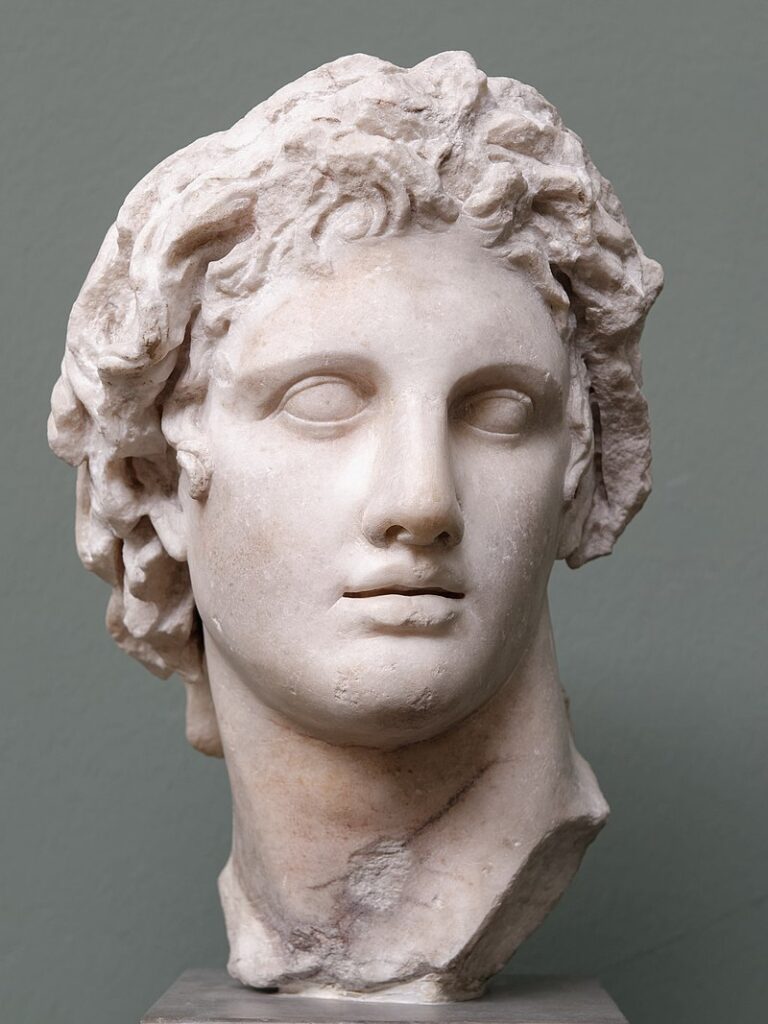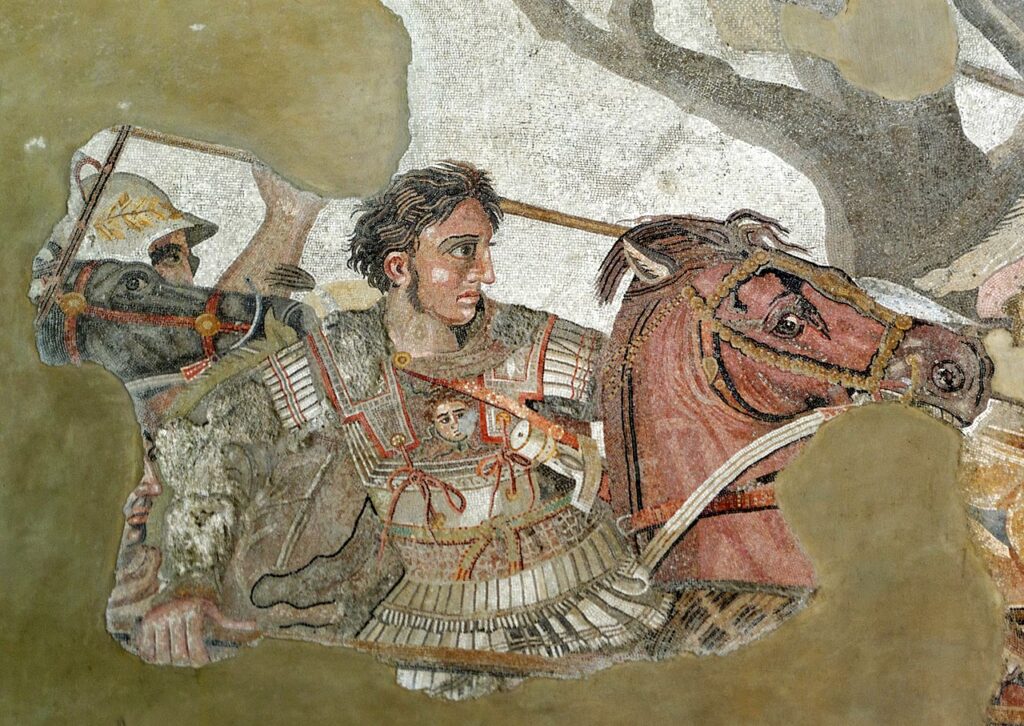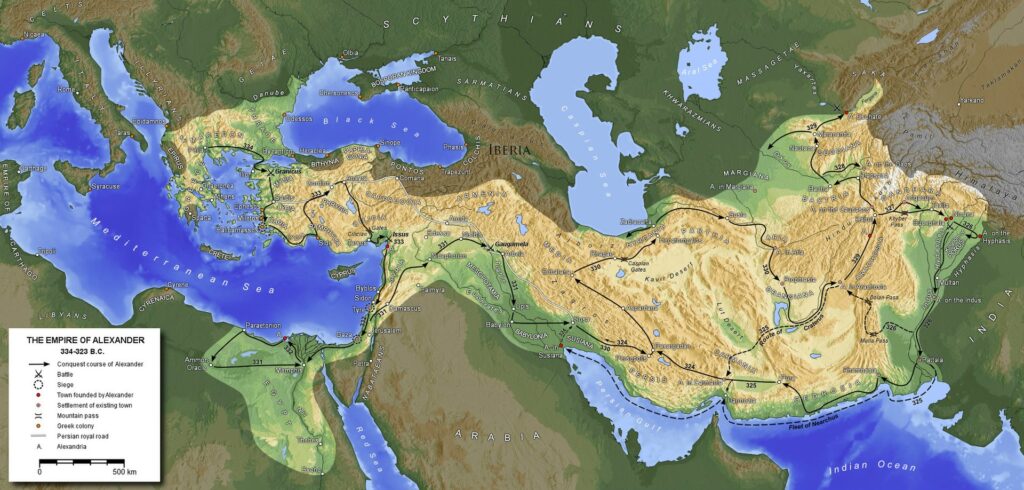

Alexander III of Macedon (356 BC – 323 BC), also known as Alexander the Great, ascended the throne of Macedonian after his father Philip II at the age of Twenty and reigned until his death at the age of 32.
Alexander progressed major of his rule pursuing a tactical mission across Asia and northeast Africa, laying out the antiquated world’s biggest domains. His property traversed from Greece all through the west to northwestern India in the east when he became 30 years of age.
Alexander’s vanquish resulted in a considerable deal of cultural influences and nurtured, allowing the evolution phenomena like Greco-Buddhism to flourish.
In addition, his propensity to founding Greek colonies aided in the spread of Greek culture in the east, sometimes with long-term consequences. Later around the 1920s in far eastern Anatolia existed Greek-speaking communities. A succession of civil wars shattered Alexander’s empire in the years after his death.
Check out our Infrastructure related Articles, here you’ll find the economy thrives when the workforce is deployed in any kind of project. a good infrastructure boosts the economy of the country also this will include the development of roads, power supply, building dams, etc.
Early stage of life
King of Macedon Philip II and his queen called Olympias, had a son named Alexander. Alexander learned science and politics from the legendary philosopher Aristotle. Antipater and Permenion, two great Macedonian generals, taught him military, battle tactics.
When Alexander became king, Thebes rebelled against him right away.


When King Philip II was assassinated, at Hellespont he almost had to join the Macedonian and Greek armed forces to attack the Persians who subjugated the Greek cities of Minor Asia. The Greeks had long been Macedonia’s partners, but after King Phillip II had died, many Greek leaders hoped to renegotiate with the new young king and obtain more reasonable terms. A war towards Macedonian took place at Thebes in 335 BC.
It was clear early on that the king had no interest in renegotiating and had no patience for rebels. Rather than utilizing delicate diplomacy, he ordered his army towards Thebes, then Macedonians had breached the city walls. And took charge of the population.
To eradicate rebellion from the remaining Greek states Alexander induced his army to create issues on Thebes, possibly saving only the temples. The rest of the Greek states learned this, they decided to support the new king rather than oppose him, and when Alexander announced his intention to fight against the Persians, the Greeks prepared ships and men to accompany him
Attack on Persians.
In the spring of 334 BC, Alexander reached the Hellespont. The Macedonian-Greek Military, also identified as the Hellenic League, vanquished the sturdy troops of Persian. Paved the way to rescuing two major cities of Greek namely Aeolis and Ionia from Persians.
The Hellenic League relocated east all over Phrygia to Gordius by Alexander in 335 BC. By demolishing with his sword he “untied” the Gordian Knot, according to legend. An individual who untangled the knot, according to an oracle, would become Asia’s leader.
The Persians were unable to prevent Alexander’s military from crossing the Cilician Gates, away among the Mountains of Taurus that connected Cilicia’s low plains with the Anatolian Plateau via the Gokoluk River’s constricted gorge. Alexander and his troops exceeded the Mountains of Taurus and arrived in north Syria.
Then encountered by a massive Persian army guided by Achaemenid Empire King Darius III. The vast Battle of Issus took place on November 5, 333 B.C. at the place where the river Pinarus meets the ocean. Hellenic League resulted in triumph and before the termination of battle Darius fled himself.
In Egypt in 332-331 BC, Alexander established a city by the side of the Nile and self-titled it.
Check out our finance-related articles, here we help people understand the basics of financial planning, share tips on saving money, and give you ideas on breaking down bad money habits to help you on the path to financial success.
Continuing his invasion
King Darius offered Alexander a peace treaty in which he would hold the occupied nations, receive 10,000 skills in cash, and marry the daughter of Darius. Alexander made his progress over Asia after denying it.
The Hellenistic League entered Assyria bypassing Syria further Euphrates and Tigris, where Darius attempted to counteract them once more. The Hellenistic confederacy triumphed yet again Darius escaped. When Alexander set foot in Babylonia, he encountered little opposition, and around 330 BC, he trounced Persepolis, the important city of Persia.
The Hellenistic League trooped north, this time to Ecbatana, to confront Darius once more. Darius was assassinated by his own officers as he escaped to Bactria, a Persian region north towards the mountains of Hindu Kush. Alexander attained the Persian throne.
He Sustained the empire. It’s one thing to conquer lands. It’s quite another to rule them. Alexander the Great had become the significant king of a vast landmass of all different traditions, belief systems, and ways of living. In addition, how people observed, respected him varies more from different locations. He became the commander-in-chief of the Hellenistic League. Egyptians treated him like a god.
A significant ruler in former Persia, his people bent to the floor to reveal to him their own deepest respect. The reality that Alexander legitimized and even observed to appreciate such actions agitated the Greeks and Macedonians, Alexander had adopted numerous Persian norms and practices to relish the Persian style of living and desired to modify his entire political system following the Persian fine administration.
Death of Alexander
Alexander starved to death in Babylon the castle of Nebuchadnezzar II on the 10th or 11th of June 323 BC. Obviously, Alexander’s death before he turned 33 sparked apprehensions of rumors that he passed due to poisoning. Multiple slow-acting toxins were assumed as a potential cause over the millennia, as well as a long list of diseases that could have killed him.
His empire stretched out from the Straits of Gibraltar towards the River Indus at the moment of his death, encompassing three parts of landmasses: Europe, Africa, and Asia.


Alexander the Great: Life and Reign of the King of the Macedonian Empire
Credit: World History Encyclopedia
Check out Criss Cross Tamizh’s recent articles, We discover ideas and get inspired to improve your skills and knowledge. We cover topics such as aviation, sports, infrastructure, finance, science, history, and more.
